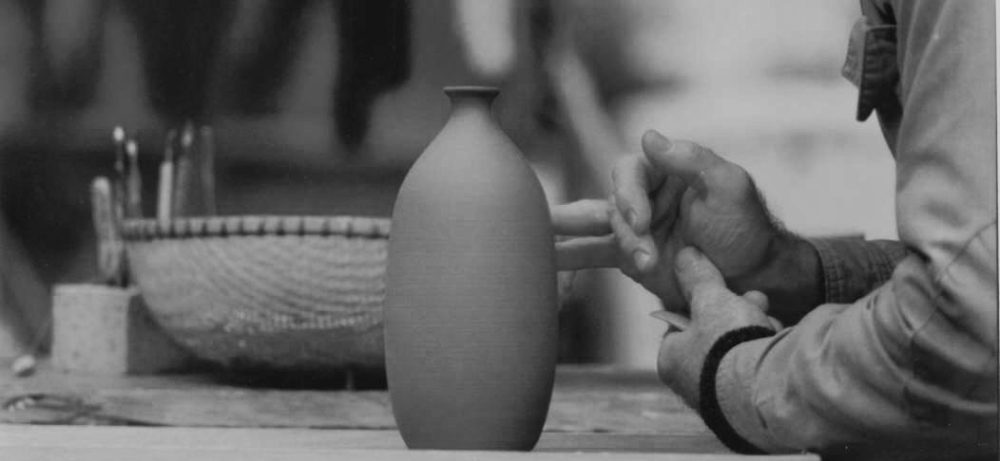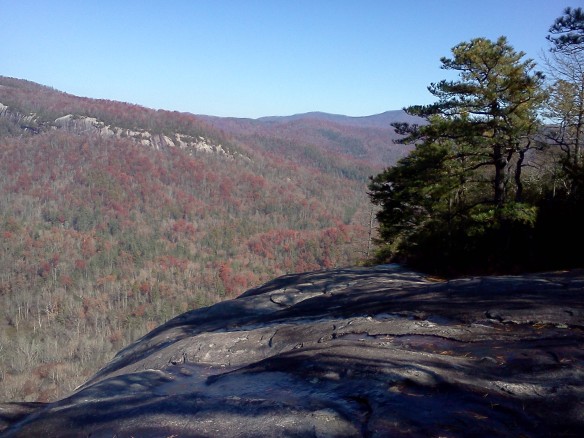After my last essay fifteen months prior, I began working on this. Basically the only thing produced—properly composed—in this time span was the title and the poem at the end. What does return mean? My dear friend Mayra says it well:
“… I want to share some information regarding the larger spiritual transformation that’s upon us—and how this will radically alter how you think, as well as naturally expand your ability to operate from love (not fear).” —Mayra Porrata
From love, not fear. And this was our beginning, your beginning. Our only hope, for anything good, is a return to love. As Mayra makes clear in this newsletter issue, the return is a transition that will include pain, disorienting spans of time, and grief. It should include these things. The return must be navigated intentionally with these things.
Return home to the You that has been since the beginning.
Pure Presence (Going Home)
All my life, here and there, I’ve heard it said, “You can’t go home again.” I’ve assumed this means that if you return it won’t be the same home you left. In that sense I would have to agree. I’ve gone home to my claimed hometown more than once. And yes, a lot changed. But was it enough change? Was it the right change?
A return to the love from which you came is a return home. It may be the only going home where one can find all just as it was left. Sit with that for a bit.
My journey back home, my return to love, began when we left that geographical home. I was 36. We lived away for 29 years, and in that span new challenges in my work, fresh experiences, and most of all, beautifully diverse interactions and relationships took hold on my seeing.
Cultural conditioning began to unravel as my view expanded beyond myopic ways of looking at many wide-ranging subjects. While some of this was indeed freeing, I would be a liar if I said some of this was not also threatening. Of course the only thing in danger were old beliefs serving nothing of value, narcissism, an ego fighting for its existence, and fear-driven expectations blocking truth.
“Isn’t this the 21st Century?” (A Violent Flow)
Watching the news about Putin’s violence and the invasion of Ukraine, I saw a brief interview of a young Ukrainian woman. It was her incredible question that I cannot get out of my head and heart; “Isn’t this the 21st Century?” Yes, have we learned nothing? Unfortunately, it would seem so.
This reminds me of something I wrote in the Essay on Compassion:
Becky and I were coming home from a pandemic-get-out-of-the-house outing, driving home via the beautiful Natchez Trace that runs right by our neighborhood. I was looking straight ahead as I drove, seeing a paved Parkway curving through lovely land and beautiful trees declaring the season. It occurred to me all this was built, and made, on a sphere suspended in the space of a galaxy, itself spinning and moving within a great Universe. Followed by a thought of how stupid we as humans behave on this tiny round speck in a grand Universe — a magnificent, sprawling territory of infinite possibility; possibility squandered by our lack of ability to see miraculous beauty and endless opportunity.
And yet we still ‘war’ and squander opportunity to be at peace with each other.
My Return to the Mother
June 2005 is the month I’ve labeled as my spiritual breakdown; an angry rant seemingly against everything I’d been taught. Truthfully, not quite everything. But honestly, a whole lot I’d been led to believe within a compromised and narrow understanding of Christianity. Blessedly for me, and those served through my work, we have a wise and wonderful friend. Beth is not just a wonderful friend but also a loving pastor. In that very month of June, she shared with me some reading to console me in my broken state. As my wife once said to one of my employees, “Jeff doesn’t read. He studies.”
In my contemplative studies of the past 17 years I’ve been very mindful of what I’ve come to believe is the ‘sin’ of the world, violence. And thanks to some of those I’ve studied, like John Dominic Crossan, I’ve become very conscious of the flow of this sin: Ideological violence—Rhetorical violence—Physical violence. If one uses God to justify violence—be it ideological, rhetorical, or physical—then that one doesn’t worship God, that one uses a god he’s created to serve his own ignorant, narcissistic means.
If one prescribes to one particular religion, or one way to worship, because it justifies the exclusion of others, then this one doesn’t understand religion at all. While religion has been used to control, manipulate, and keep others within borders (real or perceived), true religion is based on inclusion and bringing together.
And if you’re a Christian, as I remain with great grieving difficulty, and you support hate, war, and any other form of violence, then you do so in direct opposition to Jesus who came to show us our freedom in love. While it would be convenient to justify myself by placing blame on something, or some others, for my own complicity in violence—be it in thought, word, or deed—that would only deepen the false protection in the Cult of Innocence (see Brian Mclauren’s book in Notes & Influences).
When the beginning is right, the rest is made considerably easier. —Richard Rohr
So as I’ve deeply considered the love from which I came, I’ve been recalling many scenes from my life; the beautiful ones always containing my organic devotion to nature. I walk every day that I possibly can, and when I can, I hike for miles in the woods along the Natchez Trace Parkway. When living in Northeast Tennessee, Becky and I hiked stunning trails in the Tennessee, Virginia, and North Carolina mountains. I fly fished the many streams and rivers. Most every day that I walk I see in my mind and heart the wonderful pasture sloping gently upward behind our house when I was a child on that dairy farm. While the world may be frustrating for all and dangerous for many, I love the Earth. I love the Mother.
So I’ve decided to return to the Mother to know and be one with all that is, that was created as Good. For my life & living in the world, I’m navigating back to the beginning; a child who understood Earth’s goodness and was shown the loving, non-violent, unlimited inclusive ways of Jesus.
Mississippi
Summer cicadas
a chorus pass
tree to tree
In June
it’s rehearsal
by July
it’s performance
in August
it’s celebration
And so it goes
beauty
one form or another
available
on what I choose
to behold
Attention I do pay
it’s the remuneration
of presence
The pottery of presence
is still being purified
in the furnace fire
of suffering, grief, joy
To a land
one can belong
selected it seems
from the beginning
And those in the land
can be led awry
by a narrative false
away from the story true
Ignorance blissful
I now doubt
’tis just ignorance
Stands taken
on ground unreal
blind inhabitants
dangerous to all
With guilt I must release
the stupid complicity
and opinions misleading
in directions away from truth
This particular land cares not
it is one with the Mother
one with each of us
This particular land
a name given
from a great flow
and a divine, earthly people
This illustrious home
where Mississippi Kites
fly high
beauty and grace
demonstrably abound
patiently soaring far
above who we think
we are
So, a choral presentation
beautiful song without words
a most meaningful verse
the golden in silence
Notes & Influences:
Porrata, Mayra. TheFlourishingWay.com – Ohio: Copyright © 2022 Mayra Porrata, LLC. (You, only better! Newsletter, Issue #13)
Rohr, Richard. Center for Action and Contemplation
Crossan, John Dominic. How to Read the Bible and Still Be a Christian: Struggling with Divine Violence from Genesis through Revelation. New York: Harper Collins, 2015.
McLauren, Brian. Do I Stay Christian?: A Guide For The Doubters, The Disappointed, And The Disillusioned. New York: St. Martin’s Essentials, 2022.
Moore, Osheta. Dear White Peacemakers: Dismantling Racism With Grace And Grit. Harrisonburg, Virginia: Herald Press, 2021.
Postlude (if you’re interested):
This is how I say what we know as The Lord’s Prayer (thanks to my study with John Dominic Crossan, and of course the likes of Fr. Rohr, Fr. Green, Fr. Keating, etc.). Here is that prayer with my mind/heart knowing in parenthesis:
Our Father
(Householder of Earth — to me, Mother and Father)
who art in heaven
(Jesus’ message is that the Kingdom of God/Heaven is already here)
Hallowed be thy Name
(Our mere breath in and out speaks this unspeakable name – YaHWeH)
Thy Kingdom come
(Distributive Justice and Restorative Righteousness—earth belongs equally to all, no matter what)
Thy will be done
(Love, pure and simple)
As in Heaven, so on earth
(Heaven is ours to live, Now)
Give us this day our daily bread
(In this Kingdom, this earth, and in a community of Love, we must want/worry not) (The Earth, and all on it, is not Rome’s, it is God’s)
And forgive us our debts, as we forgive our debtors
(Forgiveness of debt was a command in Judaism—the land is God’s—this had nothing to do with sin … rather, Jubilee years)
And lead us not into temptation
(Keep us from counter violence)
But deliver us from evil
(Violence IS the evil; and the flow is Ideological Violence to Rhetorical Violence to Physical Violence)
For Thine is the Kingdom, the Power, and the Glory, for ever.
Amen


